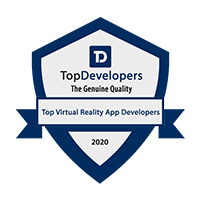DevOps is all about bringing more collaborations and automation, speeding the entire product development, deployment, and delivery. Developers, testers, and operations teams need to work in tandem. Email and messages are not suitable for such continuous and instant collaboration. So the question arises, how developers can share code and software with testers and how testers will share their feedback, and so on. For this entire process, DevOps Consulting Services require tools so that people from different groups can communicate and collaborate easily at each and every step.
Previously, we had discussed “What is DevOps”, why and how traditional businesses need to move to DevOps. In this article, we will go through the elements of DevOps, what top DevOps Companies are doing for DevOps, and so on.
How Developers Will Share the Code with Operations
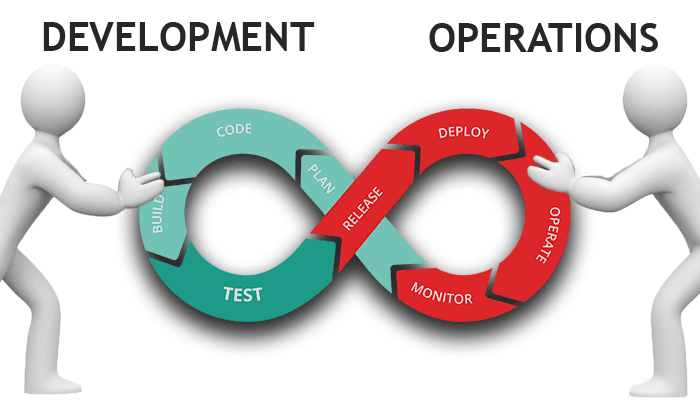
To share code with system administrations, Developers need a system where they can share codes. Containers fulfill this requirement.
Container…What Is It Doing in DevOps?
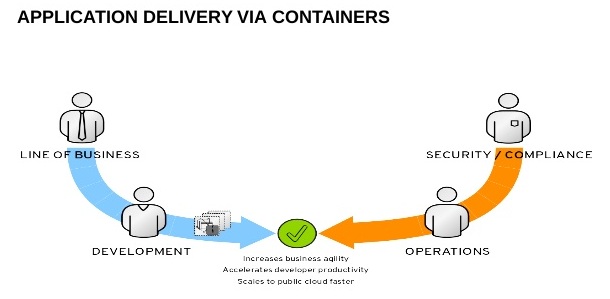
A software Container includes complete runtime environment i.e. applications and its dependencies, configuration files, libraries and binaries all are packed in one package. The encapsulation of applications and its dependencies and other elements inside a container is called containerization. It is an important part of the DevOps Process flow and modern software engineering.
The advantage is twofold:
- It simplifies the development, testing, and deployment of the code in DevOps.
- Solves the problems of how the software will run on another computing environment.
Containerization is just like a virtual machine which operates on its own operating system. As DevOps talk about the automation, collaboration, and better communications; it is what exactly containerization is meant to deliver with packaged software that can be easily shipped. Nowadays, Containerizations is going to a different level with Dockers, an open-source container tool.
What are Dockers?
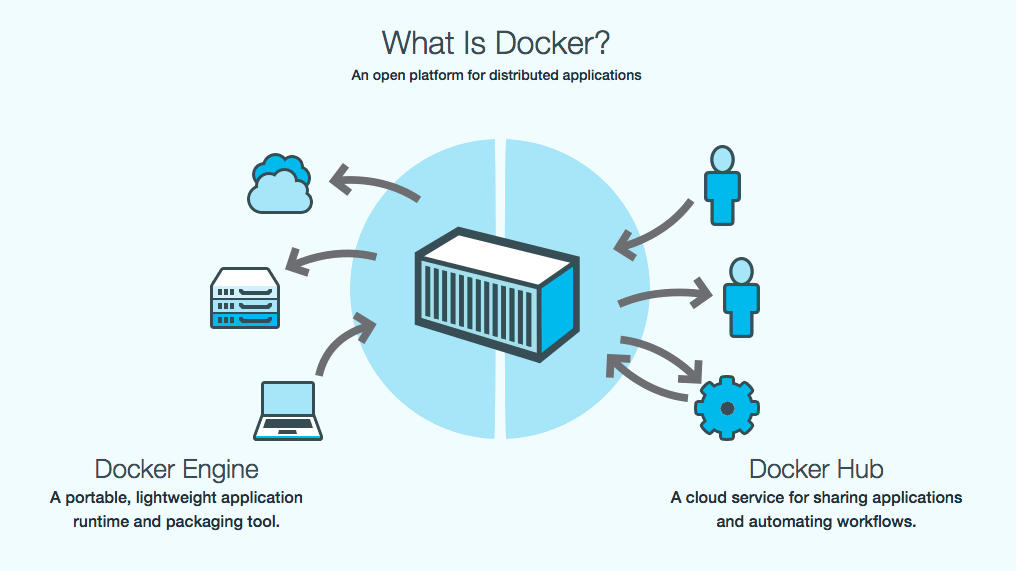
Docker is an open-source container tool which allows us to create lightweight VMS through code. It is meant to run on any environment including virtual machines, physical computers, clouds, bare metals, etc. It also helps in the deployment of the code as quickly as possible through various services in containers.
Docker consists of two parts, firstly it has various types of Containers also known as Docker VM’s and secondly, it has Docker Hub which is an online Docker’s VM sharing service. When we look from the base machine, we can see only a single process running for each docker instance but when we look from within the docker, we can see the whole system. Docker containers are built in such a way that testers, developers and administrators can simultaneously work together in code deployment in a faster way.
Challenges with Docker
With the increased use of containerization and Docker, DevOps Solution providers need to maintain many containers. Some enterprises need to maintain hundreds or thousands of containers. In such a situation, it becomes a challenge to maintain how all these containers will be coordinated or scheduled.
What to Do to Manage a Large Number of Containers
To manage the life cycle of all containers in such a large and dynamic environment, Container orchestration tools are needed. Well, there are various orchestration tools available though Kubernetes is considered as a standard one.
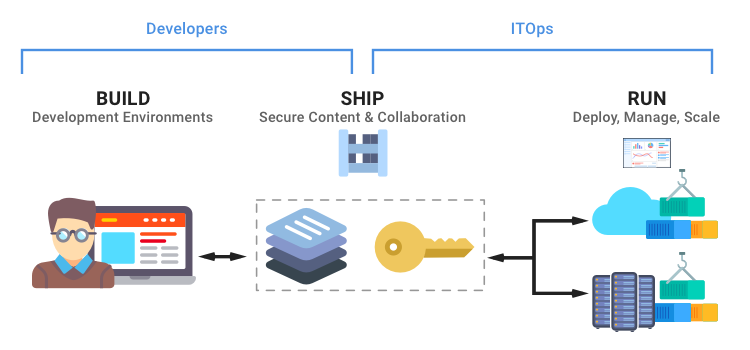
Kubernetes allows DevOps practitioners to deliver a self-service Platform-as-a-service which creates a hardware layer abstraction for development teams. Another reason for the popularity of Kubernetes is its extreme portability feature. Originally, it was started by Google but nowadays you can see some of the cloud service providers have Kubernetes-as-a-service such as Amazon Web Services (AWS) and Microsoft Azure. Moving of workloads don’t require application redesigning or completely rethinking of your infrastructure. Thus organizations can standardize on one plat avoiding vendor lock-in.
What to Choose

If we are talking about DevOps, we must know that it is more than a single process, practice or tool. There is a series of practices such as Continuous development that includes planning and coding phase of DevOps lifecycle. Continuous integration is all about connecting the configuration management (CM), test, and development tools. Continuous Monitoring includes monitoring of code development and its underlying infrastructure and many more. All of the practices require tools and there are many of them available. So which will be your choice? And, the answer to all these depends on your requirement and the complexity of your job.
To overcome your anxiety for finding a solution, you can contact our DevOps Consulting Services. If you need any help you could drop a mail at enquiry@queppelintech.com.


